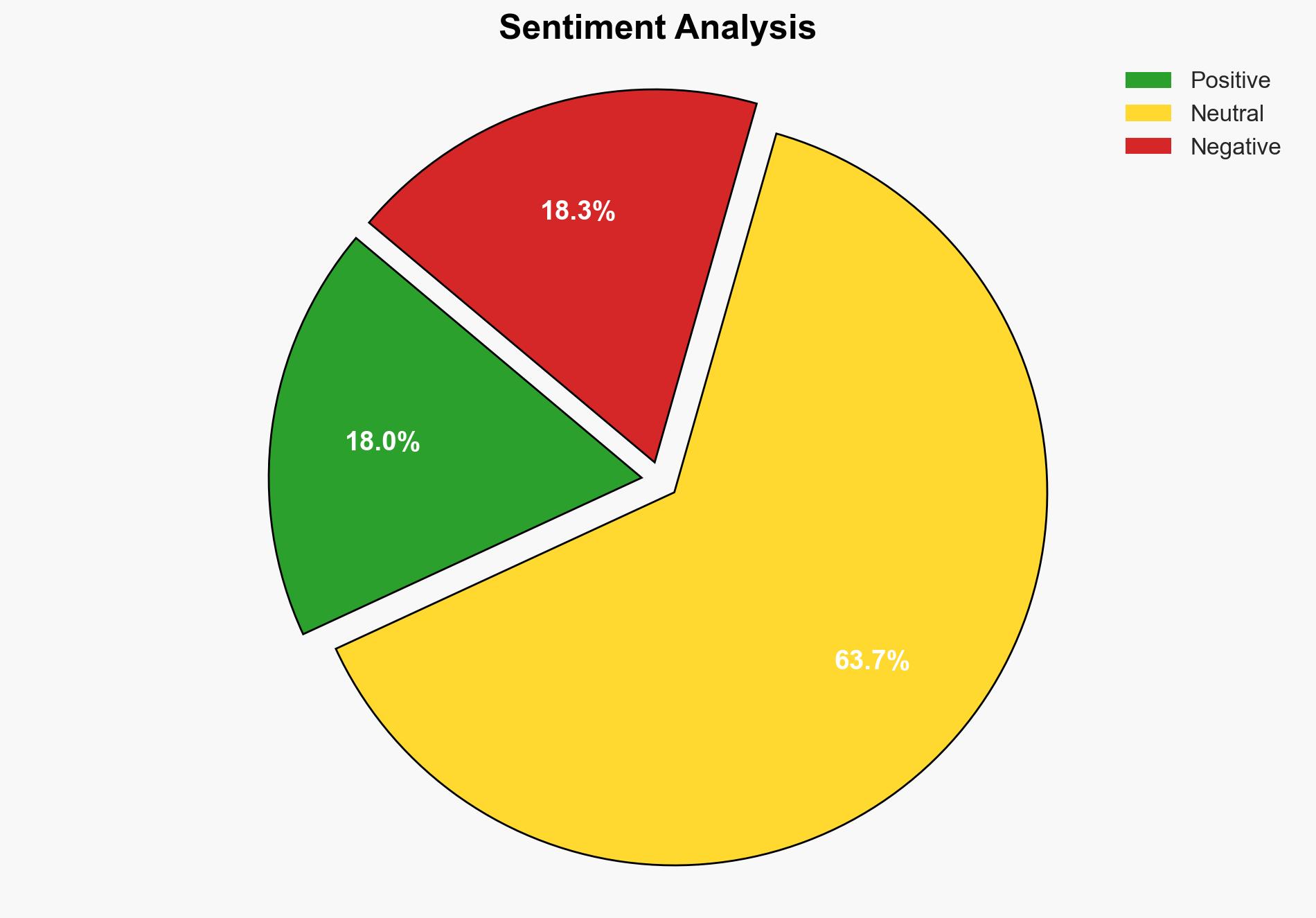The number of deployable nuclear weapons has increased across the globe – ABC News (AU)
Published on: 2025-03-04
Intelligence Report: The number of deployable nuclear weapons has increased across the globe – ABC News (AU)
1. BLUF (Bottom Line Up Front)
The global inventory of deployable nuclear weapons is on the rise, with significant increases reported in China, North Korea, India, and Pakistan. Despite ongoing international disarmament efforts, these developments pose a growing threat to global security. The Treaty on the Non-Proliferation of Nuclear Weapons (NPT) remains a critical framework for promoting disarmament, yet its effectiveness is under scrutiny as more countries expand their arsenals. Immediate action is required to reinforce disarmament efforts and prevent further proliferation.
2. Detailed Analysis
The following structured analytic techniques have been applied for this analysis:
SWOT Analysis
Strengths: Established international treaties like the NPT provide a framework for disarmament.
Weaknesses: Erosion of disarmament efforts and lack of enforcement mechanisms.
Opportunities: Increased global advocacy for nuclear disarmament and potential for new treaties.
Threats: Rising nuclear stockpiles in key regions and geopolitical tensions.
Cross-Impact Matrix
Increased nuclear capabilities in China and North Korea may influence regional security dynamics, prompting neighboring countries to reconsider their defense postures. This could lead to an arms race in Asia, impacting global stability.
Scenario Generation
Best-case scenario: Renewed international commitment to disarmament leads to a reduction in nuclear arsenals.
Worst-case scenario: Escalation of regional conflicts involving nuclear-capable states.
Most likely scenario: Continued gradual increase in nuclear stockpiles with sporadic diplomatic engagements.
3. Implications and Strategic Risks
The increase in deployable nuclear weapons heightens the risk of nuclear conflict, undermines regional stability, and poses significant threats to national security. Economic interests may also be affected due to increased military spending and potential disruptions in international trade.
4. Recommendations and Outlook
Recommendations:
- Strengthen international treaties with enforceable verification mechanisms.
- Encourage diplomatic dialogues and confidence-building measures among nuclear-capable states.
- Invest in technologies and strategies to detect and prevent nuclear proliferation.
Outlook:
Best-case: Strengthened international cooperation leads to a reduction in nuclear arsenals.
Worst-case: Escalation of tensions results in regional conflicts involving nuclear weapons.
Most likely: Gradual increase in nuclear capabilities with intermittent diplomatic efforts.
5. Key Individuals and Entities
The report highlights individuals such as Hans Kristensen, Raymond Johansen, and Anthony Albanese. Key entities include the Norwegian People’s Federation, Federation of American Scientists, and the Department of Foreign Affairs and Trade (DFAT).





